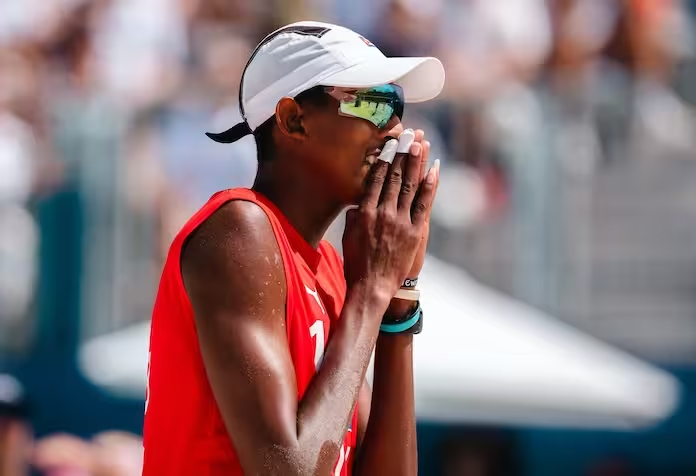Cuba didn’t deserve that.
Jorge Alayo and Noslen Diaz became the story of beach volleyball in these Olympic Games when they not only upset their way to a Pool D win but looked very much the part of the favorites to do so, sweeping Andy Benesh and Miles Partain, Brazil’s George Wanderley and Andre Loyola, and tacking on the expected victory over Morocco. After those three matches, Alayo led the tournament in blocks per set. Diaz, the tallest defender in the field, was tremendous, a Giannis Antetokounmpo on sand.
Their reward?
Drawing Sweden, the best team in the world, the pair who has made 10 straight finals, in the first round of the playoffs.
How does this happen?
Pool play.
The current format of the Olympic Games is a round-robin style pool play in which the four teams in each pool all play one another. The top three teams break pool, with the two best third-place teams, as determined by set and point differential, beginning in the round of 16.
Because Sweden’s win, over Australians Mark Nicolaidis and Izac Carracher, came in a sweep and one of their losses — to Qatar’s Cherif Younousse and Ahmed Tijan — came in a three-setter, they began playoffs in the round of 16.
The same round where all of the 3-0 teams began.
To call the system unfair, as many have, is not my favorite verbiage. It’s a fair system in that it’s equally unfair to everyone. Cuba could have gone 1-2 in pool play — as the on-paper seeding would have expected — and drawn a 3-0 Swedish team and few would have blinked an eye about it. In that sense, it is fair.
But it is unjust.
A team with one loss and two wins should not be in the same position as a team with three wins.
Cuba was unjustly punished for winning pool and playing arguably the best beach volleyball of any team through the first three matches. Sweden was unjustly rewarded for playing their worst beach volleyball in more than a calendar year.
This presents one of the many issues with pool play: there are oftentimes little to no consequences for losing, and little to no benefit to winning.
There is occasionally an incentive to lose.
Phil Dalhausser and Todd Rogers had no intention on losing their opening round of pool play to Latvian youngsters Aleksandrs Samoilovs and Martins Plavins in Beijing of 2008. Indeed, the heavy favorites to medal in Beijing very much desired to win.
They didn’t, and the 21-19, 21-18 stunner is still considered the greatest upset in Olympic beach volleyball…
Click Here to Read the Full Original Article at Volleyballmag.com…

